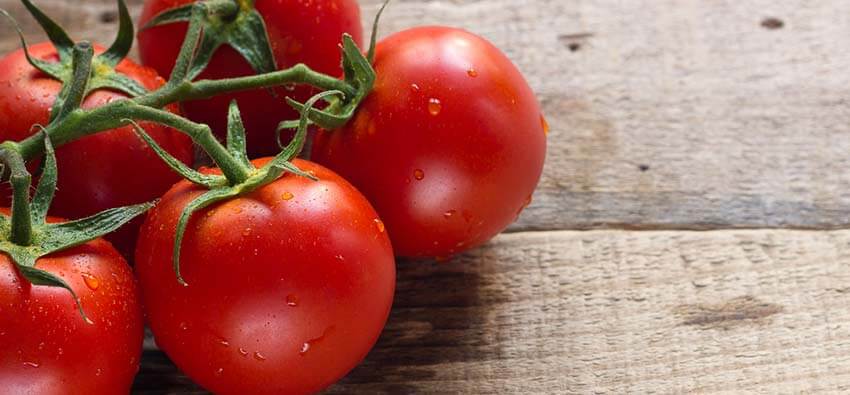InspectionFAQs
Note: This will be updated periodically. In the event of a conflict between these FAQs and the 2019 Suspension Agreement, the 2019 Suspension Agreement governs.
Starting April 4, 2020, certain tomatoes from Mexico (see Question 3) that are subject to the 2019 Suspension Agreement must have a U.S. Department of Agriculture (USDA) inspection for quality and condition defects near the border after entering the United States (“Suspension Agreement inspections”). The inspected tomatoes must grade U.S. No. 2 or better. The importer is responsible for requesting the USDA inspection and paying the associated USDA fees. Importers also must retain all documentation related to the inspection. Failure to call for an inspection, and failure to keep the appropriate documentation, may be deemed to be a violation of the 2019 Suspension Agreement.
Subject to Suspension Agreement inspections:
- Round tomatoes:
- Round Fresh Tomatoes, whether mature green or vine ripe, not including any Stem On tomatoes, regardless of growing method or type of packing
- Roma tomatoes:
- Roma or plum Fresh Tomatoes, whether mature green or vine ripe, not including any Stem On tomatoes, regardless of growing method or type of packing
- Stem On tomatoes:
- Any type of Fresh Tomato, except Specialty and Tomatoes on the Vine, with some or all of the stem attached
- Grape tomatoes in bulk
Exempt from Suspension Agreement inspections:
- Tomatoes on the Vine:
- Any type of Fresh Tomato, except Specialty, in which there are two or more tomatoes, typically in a cluster, with the vine attached; such tomatoes include single tomatoes of the same type that are found in the same package with the tomato clusters herein defined
- Specialty tomatoes:
- Grape, cherry, heirloom, cocktail Fresh Tomatoes, or any other tomato varietal, other than Round and Roma tomatoes, with or without stem
- Grape tomatoes in retail packages of 2 pounds or less.
The purpose of the Suspension Agreement inspections is to prevent low-quality and poor-condition tomatoes from entering the U.S. market and injuring the U.S. domestic tomato industry through price suppression or undercutting. The antidumping law requires that the 2019 Suspension Agreement completely eliminate injury to the domestic industry.
Yes. The U.S. Customs and Border Protection’s (CBP) inspections for the Tomato Brown Rugose Fruit Virus do not affect the need for Suspension Agreement inspections.
No. Tomatoes from Mexico that are inspected pursuant to the Section 8e requirements of the Agricultural Marketing Agreement Act, 7 CFR Part 980 and Federal Marketing Order 966, are not required to undergo a separate inspection under the Suspension Agreement inspections requirement.
Once tomatoes enter the United States and are available for inspection, you can call, email, or fax your nearest inspection office to request an inspection. Inspections must be requested using the Form SC-237. If you choose to request by phone, you must provide the office with the required information on the Form SC-237.
To request inspection services, please contact your local office:
- Nogales, Arizona
- Contact: Shau Booker
- Phone: 520-281-0783, extension 3
- Fax: 520-337-9106
- San Diego, California (Otay Mesa)
- Contact: Teresa Rhea
- Phone: 916-661-6355
- Fax: 916-661-6963
- Alamo and Laredo, Texas
- Contact: Noe Carreon
- Phone: 956-787-4091
- Fax: 956-783-0479
- El Paso, Texas
- Contact: Andres Sandoval
- Phone: 915-309-1054
If your local office is not listed above, please go to www.ams.usda.gov/services/sci-contacts to find yours, or contact the Specialty Crops Inspection Division at 800-811-2373 or SCIinspectionoperations@usda.gov.
For prompt service, inspection requests should be made when the shipment of tomatoes has arrived at the warehouse and is available for inspection.
At locations that normally have USDA inspectors in the area (see Question 6 above) a USDA inspector will normally arrive and complete the inspection within 24 hours of the importer’s official request for inspection. At other locations, a USDA inspector will normally arrive and complete the inspection within 48 hours of receiving the official request for inspection from the importer.
USDA has hired additional staff at the border to handle the anticipated increase in the number of inspections. The additional staff will be on board and trained before April 4, 2020.
Contact your local office (see Question 6 above) about its procedures for requests for after-hours and weekend inspections. In general, inspectors will be available to perform inspections on Saturdays. For inspection requests received on a Sunday or after hours any day of the week, inspectors will respond to the request early the following business day.
If the importer has called for an inspection as per USDA guidelines, and no inspection has taken place within 48 hours, the importer should contact the local inspection office. If the issue remains unresolved, the entity requesting the inspection should contact SCIinspectionoperations@usda.gov and Tomatoes@trade.gov for further guidance.
The importer. As noted above, the importer is also the party responsible for requesting the inspection.
Suspension Agreement inspections can take place anywhere in the United States. As USDA inspectors are stationed near or at the border, it is most efficient for an importer to schedule an inspection there. Inspections taking place outside of those areas may result in a later arrival and completion time for the USDA inspector.
The U.S. Department of Commerce can request documentation related to inspections for monitoring and enforcement purposes. Parties are required to maintain documents associated with USDA inspections, as applicable. For example, importers must retain the following documents:
- USDA inspection reports;
- Proof of reconditioning and re-inspection, if applicable; and
- Records to support any return or destruction of tomato lots.
USDA is not implementing the Super Lot Program for fresh tomatoes from Mexico this season.
No. However, a border inspection is required if Mexican tomatoes subject to the inspection requirement (see Question 3) enter the United States from Canada.
If your tomatoes fail inspection at the border, you have three options:
- Dump the entire lot
- You must request that a USDA inspector witness the destruction of the lot. The inspector will issue a dump certificate, which you should retain in accordance with U.S. Department of Commerce requirements.
- Send the entire lot back to Mexico
- Retain documentation proving return to Mexico.
- Recondition the lot and request another USDA inspection
- Any culls must be destroyed under USDA supervision.
- Retain all records of this process.
No. If a lot fails an inspection pursuant to the 2019 Suspension Agreement, the tomatoes can only be returned to Mexico, destroyed under USDA supervision, or reconditioned and re-inspected (with culls destroyed under USDA supervision). Under certain circumstances, tomatoes inspected pursuant to Section 8e of the Agricultural Marketing Agreement Act may be donated.
If you choose to donate tomatoes under Section 8e, ensure that the donated tomatoes in the United States are for consumption, rather than for sale by the charitable organization. Maintain complete and detailed records of all donations. These records may be requested by Commerce at any time.
Yes. If you choose to make such a donation, ensure that the donated tomatoes in the United States are for consumption, rather than for sale by the charitable organization. Maintain complete and detailed records of such donations. Commerce may request donation records at any time.
Please contact SCIinspectionoperations@usda.gov or call 1-800-560-7956.
The 2019 Agreement is between the Department of Commerce (Commerce) and the Mexican Signatories, i.e., substantially all producers/exporters of Mexican tomatoes. The Signatories are responsible for ensuring that an inspection occurs (if required by the 2019 Agreement), for example through a contractual arrangement with the first unaffiliated seller in the United States.
If a party has knowledge of a suspected PACA violation – for example, that an importer of fresh produce is operating without a PACA license – that party should inform PACA of the alleged violation at PACAInvestigations@usda.gov.
With respect to the 2019 Agreement, Commerce encourages parties who have knowledge of possible violations to use the procedures outlined in the 2019 Agreement at Appendix H. Appendix H enables persons with knowledge of suspected Violations of the 2019 Agreement to inform Commerce by emailing the below form to Commerce officials at tomatoes@trade.gov. The form and any factual information provided will be placed on the record of the proceeding by Commerce officials. The person submitting the form and factual information to Commerce is, pursuant to 19 CFR 351.303(g), required to include a certification of factual information, and should use the applicable certification formats provided therein. If the person submitting the form is claiming business proprietary treatment for certain information under Commerce’s regulations, the submission must be accompanied by a public version, in accordance with the requirements of 19 CFR 351.304.
In general, Commerce will work with the Mexican Signatories, the Government of Mexico, and other U.S. government agencies to investigate alleged violations of the 2019 Agreement that have been documented and placed on the record. Enforcement actions that can be taken include, but are not limited to, revising the 2019 Agreement if Commerce makes a finding that the Agreement no longer meets the relevant statutory requirements, and, if necessary, terminating the Suspension Agreement and imposing an antidumping duty order.
Please email Tomatoes@trade.gov.

